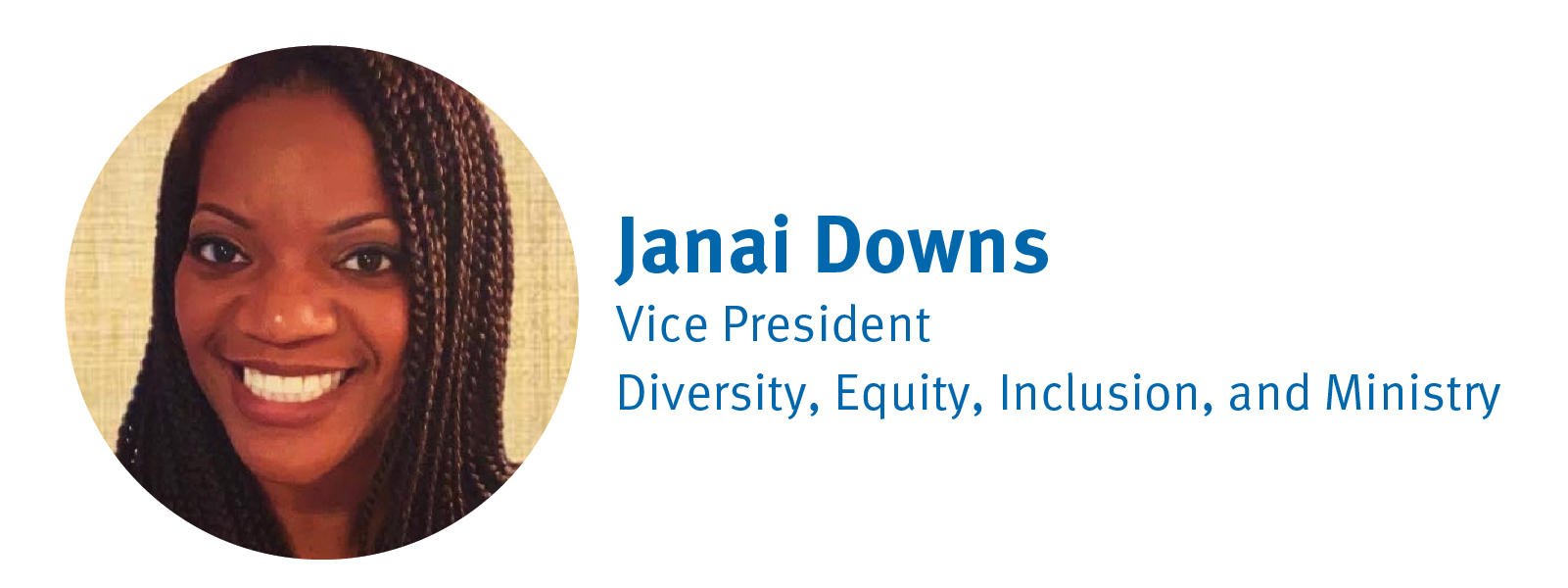Black History Month Reflection

Written by Janai Downs,
Vice President of Diversity, Equity, Inclusion, & Ministry
Black History Month is a great time of acknowledgement, reflection, and celebration. Since 1926, when Carter G. Woodson, a Black Historian and Scholar encouraged a weeklong celebration, many in our nation and beyond have been highlighting the Black experience in these very ways.
We take time to acknowledge the contributions of Black people. The true list of inventions would take much longer than 28 days to acknowledge. A few major ones that we utilize daily and have had worldwide impact include the modern toilet, the traffic lights, the home security system, automatic elevator doors, and the gas heating furnace. Even as you read this blog, you may be enjoying a snack called the potato chip that was created by George Speck, a Black Chef.
We take time to reflect on the Black experience, namely in the United States. There is a very unfortunate truth that a people dwelled on the west coast of the continent of Africa, called Negroland. These Black people were ripped from this land and carried on ships to America and enslaved. That first ship hit North American in August 1619 and for more than 400 years, there has been a struggle for true equality. While the reflection is heavy, it is necessary.
We take time to celebrate Black culture through music, dance, entertainment, sports, food, and more. These celebrations include the financial support and promotion of Black owned businesses and creations. In a time when opposition and oppression are still very real, celebrating the culture and contributions brings much-needed hope and joy.
This year’s National theme for Black History Month is Black Resistance. It’s an exploration of how Black people have addressed ongoing disadvantage and oppression. Some of the prominent ways include innovation, lobbying, litigation, and legislation. These strategies have served as a model for every social movement by a marginalized group. There have been protests and marches and meetings to change laws, all to benefit the efforts to progress into a more equitable society. One form of resistance that doesn’t usually make the list is worship. Black people, since before enslavement in America, since before the settlement in Negro Land in Africa, since before the canonizing of what we know as the Bible, have been worshipping God. And ‘til this day, Black Church and Black Worship has been the greatest form of resistance to address the intensities of inequality and hate.
We can be proud that Volunteers of America is committed to amplifying the work and voices of Black people as we build a more equitable and just society.

